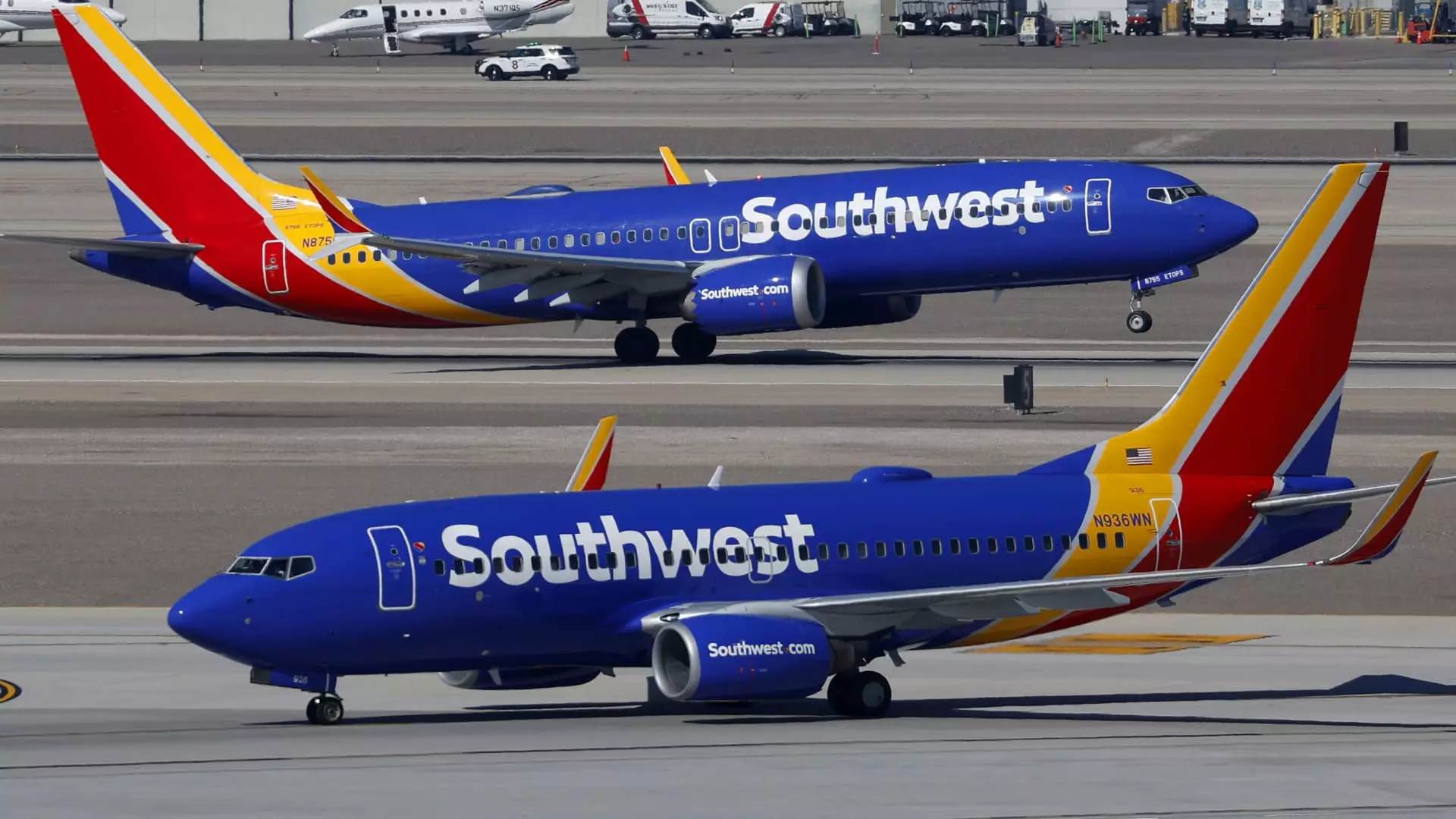In a startling announcement on Wednesday, Southwest Airlines revealed plans to cut its capacity for the latter half of the year—a sign that ominous clouds loom over its domestic booking landscape. The airline’s prediction of flat to significantly reduced unit revenue—projected to drop as much as 4% in the second quarter compared to the same period last year—should raise alarm bells among investors and consumers alike. Such cuts, reflective of a deteriorating market, fuel concerns regarding the airline’s viability as we navigate an unpredictable economy. With competitors like United Airlines and Delta Air Lines also scaling back their domestic offerings, this trend suggests that the undercurrents affecting the aviation sector are growing more severe.
Forecasting Anxiety: A Symbol of Broader Economic Ills
Southwest’s decision not to reaffirm its earnings guidance for 2025 and 2026 speaks volumes about its outlook amidst a climate that increasingly resembles a quagmire of uncertainty. The airline’s own admission—”it is difficult to forecast given recent and short-lived booking trends”—captures a profound sense of hesitation that plagues the entire industry. United Airlines dubbed the current economic environment as “impossible” to predict, echoing a sentiment that reverberates throughout Wall Street. This inability to create reliable forecasts not only threatens profit margins but also damages consumer trust. The higher the stakes, the more volatile the landscape becomes, showcasing how even well-established corporations are not immune to the ravages of a shifting marketplace.
Transformative Moves: Desperate Times Call for Innovative Measures
In a bid to reinvigorate its revenue streams, Southwest Airlines has undertaken a dramatic overhaul of its half-century-old business model. The pivot towards offering fare sales through various platforms, alongside plans for a more structured seating arrangement, signals a desperate scramble for relevance. Implementing restrictive basic economy tickets and lethal baggage fees—killing the once-sacrosanct policy that allowed two free checked bags—reflects a wholesale shift in company philosophy driven more by necessity than choice. With activist investors like Elliott Investment Management applying pressure to broaden revenue capabilities, these changes showcase the struggle for a balance between maintaining a loyal customer base and adapting to competitive pressures that demand a premium service experience.
Reality Check: A Difficult Path Forward
Despite its efforts to pivot, the numbers tell a more sobering story. In the first quarter, Southwest’s net loss of $149 million reflects only marginal improvement against the staggering loss of $231 million from a year prior; this cost burden signals ongoing challenges. The revenues managed to inch up by a mere 1.6% from the previous year to $6.43 billion; however, the reality is that efforts to achieve profitability remain elusive. With analysts poised to question executives in an upcoming earnings call, it is essential for the company to elucidate its strategy effectively to restore confidence among stakeholders.
In an age rife with economic instability, the path ahead for Southwest Airlines appears fraught with challenges that demand nimble adaptation, lest it find itself relegated to the sideline of an increasingly competitive market.

